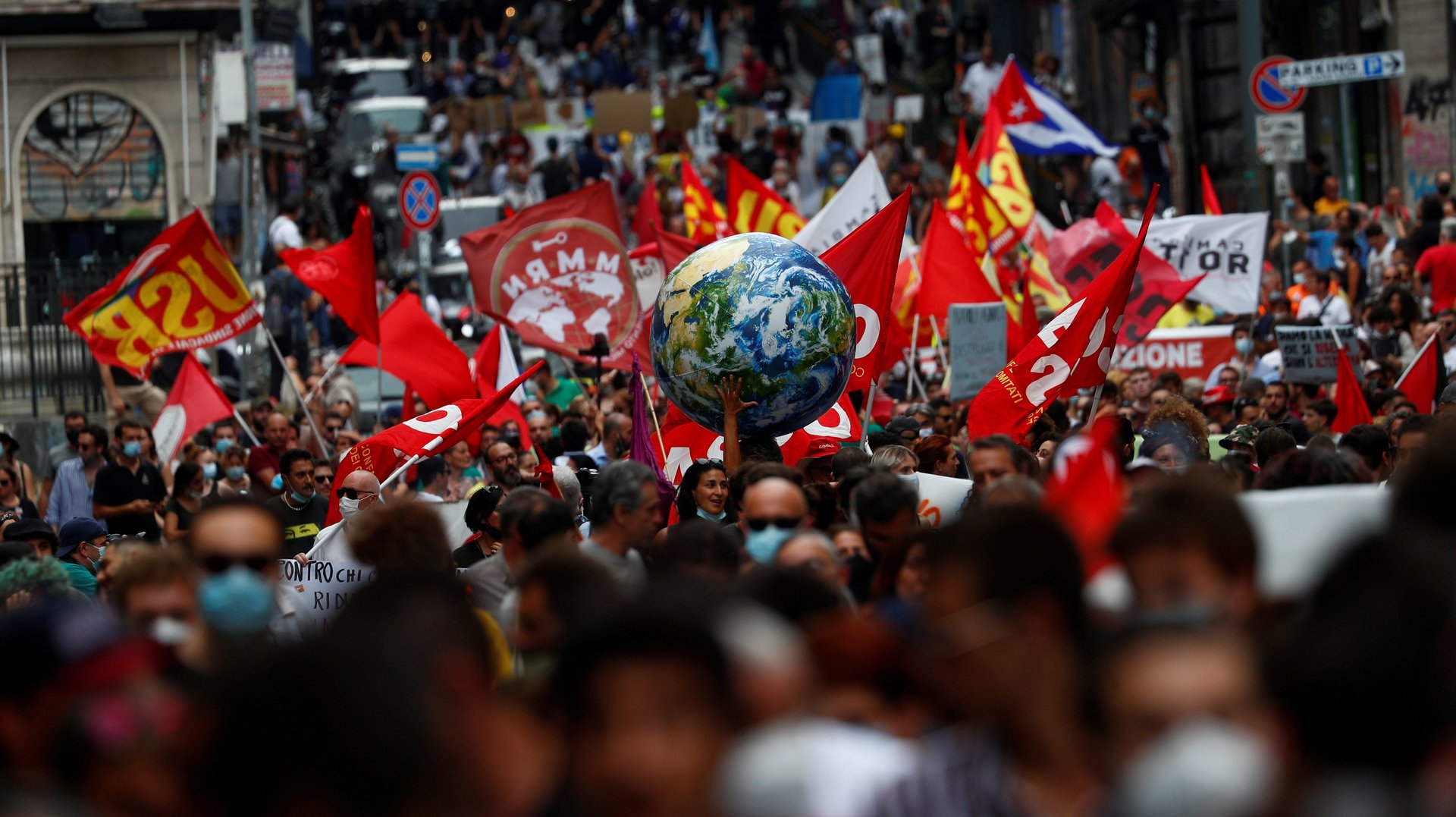Accessing courage in the midst of the climate catastrophe
Wynn Bruce recently took his life in front of the US Supreme Court. It has been reported that he intended to draw attention to our climate catastrophe. While such a drastic act cannot in any way be condoned, we have deep compassion for the moral suffering he must have been experiencing and echo the message he probably tried to communicate: that despite all scientific warnings, our society is not taking adequate measures to address climate change at the necessary scale and speed.


Wynn Bruce recently took his life in front of the US Supreme Court. It has been reported that he intended to draw attention to our climate catastrophe. While such a drastic act cannot in any way be condoned, we have deep compassion for the moral suffering he must have been experiencing and echo the message he probably tried to communicate: that despite all scientific warnings, our society is not taking adequate measures to address climate change at the necessary scale and speed.
We witness many people, especially the young, experiencing what we might call “pre-traumatic stress,” deep fear and anguish in anticipation of a horrifying future. We also know that such concerns are often followed by overwhelm, paralyzing any sense of agency and often leading to moral apathy, futility, grief, and despair.
Yet there is another option.
Using anguish as a basis for engagement
Moral suffering, the distress we experience in response to an encounter with moral adversity that violates our sense of integrity and conscientiousness, does not have to lead to a tragic outcome. Consistent with the wisdom of never wasting a good crisis, we can use the anguish we experience as a transformational force within ourselves and as the basis of our engagement with the world.
Most of us realize that continuing to develop extractive economic growth models dependent on fossil fuel no longer makes any sense. Energy, food and land use, construction, heavy industry, the finance sector—all of these need total make-overs if we are to slow climate change. Thankfully there are already multiple well researched, science-based pathways available to accelerate these shifts. They typically cover the technological, political, and economic elements, and offer benefits including energy independence, job creation, and better health.
Without minimizing the urgency of those transitions, we should also recognize that if we want a fertile and resilient future we must place equal importance on our psychospiritual transformation. It is our moral standing that determines our capacity to engage constructively with the outside world.
This aspect is far less well articulated in the mainstream. It is not often that we speak about the need to access the necessary internal tools which could at last unlock the stubborn barriers to climate and environmental action.
Nurturing a rising consciousness
Gratefully, more and more of us are cultivating the qualities of character that make it possible to face the destruction we have wrought on this Earth, nurture the humility to embrace grief and pain, and take principled actions that transform the habits of mind binding us to consumerism, racism, and elitism.
When we, as individuals, corporations, institutions, or a nation cause damage or suffering to other beings or ourselves, basic integrity is compromised and moral suffering is the outcome. When we intentionally choose to actively alleviate the burden or suffering of others, our integrity is affirmed and we contribute to constructive change.
We have exhausted the short-term benefits of acting from a competitive and extractive mindset. The only way to increase our chance of surviving and thriving is to elevate and prioritize conscientious and courageous collaboration with each other. In a world where we have reached and exceeded planetary boundaries, solidarity and compassion have become as essential for our survival as food, water, and oxygen. Survival of the kindest overcomes survival of the fittest.
”Moral nerve” is a term coined by author Joan Didion to describe the non-negotiable virtue we can display when standing over the abyss of harm. Moral nerve has us engage with the aching world from a basis of wise hope or stubborn optimism. It does not mean seeing things unrealistically but rather seeing both the presence of anguish and the possibility of its transformation at the same time.
We know from our experience as climate advocates that moral nerve, wise hope, and stubborn optimism grow the broad and strong wings of a moral and awakened view that is uplifting, life-affirming, and life-giving. This is how we transform the experience of moral suffering into courageous, judicious, principled action, and how we construct our thriving future.
Roshi Joan Halifax is founder of the Upaya Institute and Zen Center in Santa Fe, New Mexico. She is a Buddhist teacher, author, and a specialist in death and dying. Christiana Figueres DBE is the former UN climate chief, an international climate expert and diplomat, co-host of climate podcast “Outrage & Optimism,” and co-founder of Global Optimism.